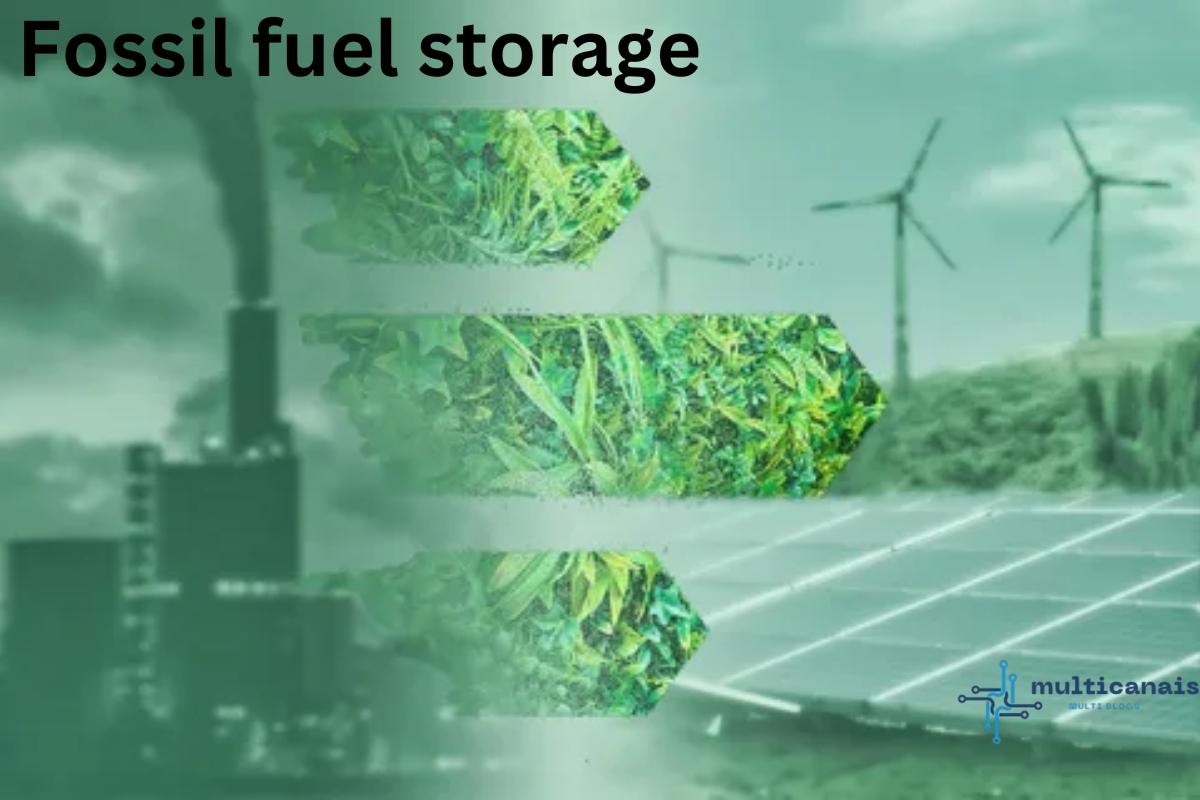Fossil fuels have long powered the modern world, driving industries and supporting everyday life. While renewable energy is gaining momentum, fossil fuels like oil, coal, and natural gas still account for a significant portion of global energy production.
One key area where we can improve the efficiency of fossil fuel usage and reduce its environmental footprint is through fossil fuel storage technology.
With the right storage systems, we can not only optimize fuel use but also minimize waste, which is vital for reducing greenhouse gas emissions and conserving energy.
The Importance of Fossil Fuel Storage Technology
Fossil fuel storage technology plays an important role in the proper storage of energy resources to prevent leakage, evaporation, and degradation of fossil fuels. It can leak, evaporate, or degrade if it is wrongly used; this leads to waste and causes environmental damage.
Its efficient use ensures keeping the fuels steady, in a leak-proof state, and ready when energy is needed. With the growing demand for energy across the globe and growing environmental concern, the optimum use of fossil fuel storage becomes highly important.
Current regulatory bodies and consumers have always tried to push energy companies to shift towards technologies that help minimize waste and reduce carbon footprint output from fossil fuel consumption.
Existing Fossil Fuel Storage Technologies
The most common traditional fossil fuel storage techniques involve underground reservoirs, above-ground storage tanks, and liquefied natural gas (LNG) terminals.
However, many of these systems are plagued by inefficiencies such as fuel degradation, leakage, and safety risks. For instance, huge oil tanks can have fuel leakage, which results in losses to these fuels and contamination of nearby environments.
Further, outdated storage methods may not keep abreast of the necessary facilities that are used to monitor conditions in real-time, with higher resultant wastes.
Novelties of Fossil Fuel Storage Technology
Advancements in fossil fuel storage technology are revolutionizing the methods of storing and managing energy supplies. For example, new sensor systems enable real-time monitoring of fuels in terms of their conditions concerning temperature and pressure, thus avoiding spills and leakage.
It also makes use of intelligent systems utilizing sophisticated algorithms and AI to predict storage demands and resource assignments for fuels. Such innovations also encompass corrosion-resistant storage materials made through nanotechnology, which will have the effect of elongating the life span of the storage tanks and preventing contamination.
Other than that, some other benefits of advanced systems include increased fuel efficiency while saving operational costs in energy companies by minimizing the loss of fuel.
Benefits of Enhanced Fossil Fuel Storage
There are numerous benefits to improving fossil fuel storage technology. For starters, these systems greatly limit the impact on the environment of fossil fuels due to spills, leakage, and other forms of waste. Thus, they contribute to the considerable diminishment of greenhouse gas emissions toward global climate goals.
Improved storage systems also enhance the safety and reliability of energy supplies, as fossil fuels would be securely stored and available when needed. Energy companies also benefit from lower operational costs because they become more efficient. Better storage eventually means less wasted fuel and other maintenance costs.
Improved energy storage therefore leads to a healthier, more sustainable industry, which means the industry will be more profitable, even as the planet gradually shifts away from fossil fuel-based energy.
Reduction of Waste Reapplied to Improvement of Storage
Saving fuel from evaporation, leakages, and degradation is an important benefit of high-end fossil fuel storage systems because proper storage can prevent fuel loss.
This wastage again increases the relation between humans and natural resource valuation risks, hence serving to reduce the carbon footprints of energy companies toward a better future. Moreover, reducing waste helps manage regulations and, by extension, environmental standards.
Challenges and Future Outlook
Despite the advantages of fossil fuel storage technology, challenges remain. Unfortunately, high front-end investment costs and technical barriers often plague small firms from utilizing new systems.
However, the increasing awareness among companies of long-term investments in efficient storage technology is bound to push forward in this field. With such a promising future, fossil fuel storage can rightly be integrated with renewable energy systems to eventually come up with hybrid storage solutions for a cleaner and more sustainable energy future.
FAQS
Could advanced storage technology delay the renewables’ shift?
Advanced fossil fuel storage technology may delay the full shift to renewable energy resources for a short period through efficiencies and waste reduction, making them more attractive in the short run. It can also complement the transition by ensuring reliable energy storage until renewable infrastructure is fully established and scalable.
What obstacles do small firms face in adoption?
Small-scale enterprises face severe entry barriers, technical know-how, and limited access to a high level of storage technologies. Additionally, they undergo regulatory compliance difficulties and an inability to raise investment, besides having higher difficulty in adopting and implementing new fossil fuel storage systems. End.
Any real-world examples of successful implementation?
For example, Chevron has designed sophisticated monitoring equipment in their oil storage warehouses. Sophisticated real-time sensors that can monitor temperature and pressure by preventing leaks and degradation of fuel and reducing waste and costs of operation result in efficiency being enhanced but with a reduced environmental risk and carbon emission.
How do regulations promote advanced storage systems?
Regulation pushes advanced storage systems further as the energy company is now obliged to abide by the safety and environmental standards. Incentives in the form of tax credits or grants prompt investors in new forms of technology. This will therefore lead to the installation of efficient forms of storage while being wasteless and environmentally friendly.
Conclusion
Fossil fuel storage technology proves to be the key area for optimization of fuel usage, waste reduction, and the safe and reliable storage of energy resources. In the long run toward a cleaner energy future, advancement in fossil fuel storage will take center stage in ensuring environmental impact reduction that is a result of increased efficiency of fossil fuels. Better storage systems are one of the core steps forward toward a sustainable and energy-efficient future.
More Read: Green Tech Innovations Leading the Eco-Friendly Charge


6 thoughts on “Fossil Fuel Storage Tech Optimizing Use & Reducing Waste”